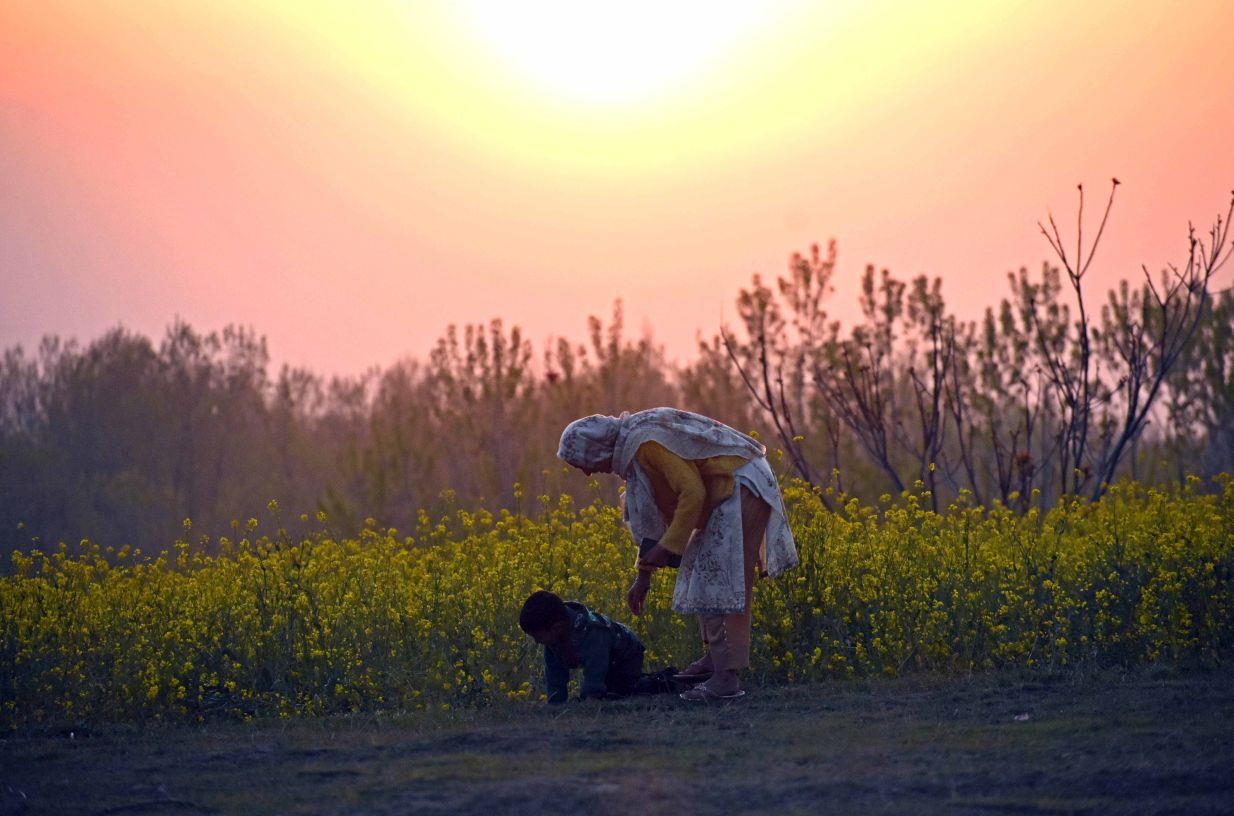The Role Of Mindfulness In Kashmir
KO photo by Faisal Khan
By Gowher Bhat
Life in Kashmir moves slowly. The harsh winters, frequent power cuts, rough roads, and financial instability shape every day. Yet, in the face of these constant challenges, people persevere - opening shops, drinking tea, praying. How do they manage? The answer is mindfulness, a practice so deeply ingrained in daily life that it is seldom named, yet it is the key to their survival.
Mindfulness in Kashmir is not a trendy term or something one actively labels. It is simply about being present, whether in the mundane act of making tea, walking through a crowded market, or quietly sipping tea with a friend. This awareness of the present moment is as much a part of the region's essence as its landscapes. It is in the rhythm of life, in the stillness between breaths, and in the vastness of nature. Mindfulness in Kashmir is about being in the moment without striving for anything more. It is living with the land, feeling it in your bones.
John Kabat-Zinn, who pioneered research in mindfulness, defines it as“paying attention in a particular way: on purpose, in the present moment, and nonjudgmentally.” His research has shown mindfulness reduces stress and improves emotional regulation, especially in difficult circumstances. For people in Kashmir, mindfulness is a tool for managing life's daily stressors, not by solving the problems, but by offering a space to breathe amidst them. It provides clarity where chaos reigns.
The challenges of Kashmir are constant: financial hardship, political strife, harsh winters. Stress becomes a companion to every aspect of life. But mindfulness offers a refuge. It won't erase these problems, but it helps to process them with a steadier mind and a calmer heart. Mindfulness activates parts of the brain that reduce the stress hormone cortisol. Studies show that it lowers anxiety, fosters emotional resilience, and helps people navigate difficulties without becoming consumed by them.
Read Also Therapy Vs. Gossip: Why We Confide in Everyone Except Professionals? Valley's Thought PrisonThe beauty of Kashmir, with its towering mountains, flowing rivers, and rustling trees, creates an environment that naturally nurtures mindfulness. The land demands stillness. The vastness invites reflection. There is no need for meditation apps or wellness programs; nature itself acts as a guide. Every element of the landscape-snow, rain, or the morning sun-offers a reminder to pause, to notice, to be present.
The people of Kashmir have been practicing mindfulness for generations, whether they label it or not. A farmer's patient tending to crops, a tailor's focus as they stitch fabric, or even a child's wonder as they watch ants march, all these are forms of mindfulness. The beauty of Kashmir lies not just in its breathtaking scenery but in these small, quiet moments that allow individuals to reconnect with themselves and the world around them.
Mindfulness, however, is not about avoiding life's struggles. It is about meeting them with presence. In a place like Kashmir, where uncertainty is constant, mindfulness becomes a stabilizing force. It teaches people to slow down, to tune into their senses, and to stay grounded in the present moment. It becomes the anchor in a sea of unpredictability.
Research has shown that spending time in nature has profound mental health benefits. People in Kashmir, living so closely with nature, are already benefiting from this connection. Mountains, rivers, and the serenity of the land offer a form of mindfulness that urban spaces simply cannot replicate. In Kashmir, nature is both a healer and a teacher.
Mindfulness is not a complicated practice. It doesn't require special tools or hours of meditation. It's found in the simplicity of everyday tasks. Whether it's walking to the market, washing dishes, or sitting in silence with a loved one, these moments become small meditations when done with full attention. In Kashmir, these acts of mindfulness form the foundation of resilience in a land where uncertainty and hardship are constant.
Mindfulness is not a quick fix. It will not eliminate Kashmir's difficulties, nor will it solve its political and economic problems. But it offers a way to navigate them with greater awareness, emotional strength, and a sense of peace.
-
– The author is an English-language expert based in Pulwama

Legal Disclaimer:
MENAFN provides the
information “as is” without warranty of any kind. We do not accept
any responsibility or liability for the accuracy, content, images,
videos, licenses, completeness, legality, or reliability of the information
contained in this article. If you have any complaints or copyright
issues related to this article, kindly contact the provider above.
Most popular stories
Market Research

- Invromining Expands AI Quant Infrastructure To Broaden Access To Digital Asset Strategies
- BTCC Summer Festival 2025 Unites Japan's Web3 Community
- Argentina Real Estate Market Size, Growth, Trends & Outlook 2033
- United States Animal Health Market Size, Industry Trends, Share, Growth And Report 2025-2033
- Fitness App Market Is Expected To Reach USD 18.16 Billion By 2033 At CAGR 22.51%
- Latin America Mobile Payment Market To Hit USD 1,688.0 Billion By 2033






















Comments
No comment